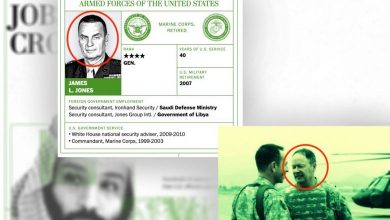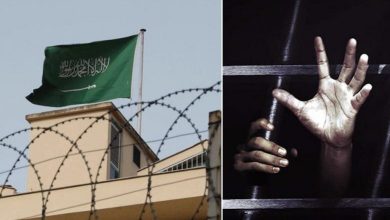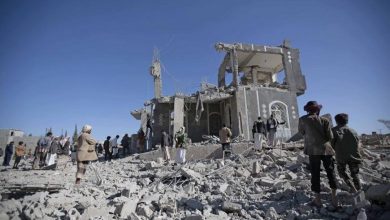Saudi Arabia escalates retaliatory sentences against opinion activists

The Saudi authorities escalated retaliatory sentences against opinion activists amid widespread human rights condemnation of the policy of perpetuating repression and banning freedom of opinion and expression in the Kingdom.
Saudi authorities sentenced Noura bint Saeed al-Qahtani to 45 years in prison after the Specialized Criminal Court convicted her of “using the Internet to tear the social fabric of [the country]” and “violating public order by using social media.”
This is under the Anti-Terrorism Law and the Anti-Cybercrime Law, according to a judicial document received by Democracy Now for the Arab World (DAWN).
Abdullah Al-Awda, director of Gulf Research at DAWN, said: “Just weeks after the horrific sentencing this month of Salma Al-Shehab to 34 years, the sentencing of Al-Qahtani to 45 years in prison, apparently just for tweeting her views, shows just how bold the Saudi authorities are. Punishing even the slightest criticism from its own citizens.”
“It is impossible not to link the relationship between Crown Prince Mohammed bin Salman’s meeting with President Biden last month in Jeddah and the escalation of repressive attacks against anyone who dares criticize the crown prince or the Saudi government for documented violations,” he added.
According to a court document and information obtained by (DAWN), the Appeals Chamber of the Specialized Criminal Court issued a ruling against Al-Qahtani in August, most likely during the past week, on charges of “disrupting the social fabric in the Kingdom” by criticizing the Saudi rulers, and “producing and storing materials that affects public order and religious values.”
This ruling followed the sentencing of Salma Al-Shehab, a PhD student at the University of Leeds, to 34 years in prison on August 9, 2022, for possessing a Twitter account, retweeting and following Saudi dissidents and human rights activists.
In that case, the Appeals Division of the Specialized Criminal Court increased the lower court’s eight-year prison sentence to 34 years. It concluded that the original ruling did not achieve sufficient “restraint and deterrence.”
The Specialized Criminal Court has jurisdiction over terrorism and security-related cases through a very broad and vague counterterrorism law.
Human rights organizations and United Nations bodies have repeatedly criticized the Anti-Terrorism Law and the Anti-Cybercrime Law for allowing the government to repress Saudi citizens and undermine human rights. Both laws are intentionally vague to give Saudi authorities maximum discretion with little accountability for transgression.
Article 6 of the Anti-Cybercrime Law prohibits “producing, preparing, transmitting or storing materials that harm public order, religious values, public morals, or privacy, through an information network or computer.” Similarly, Article 1(a) of the Anti-Terrorism Law defines the crime of terrorism as including acts that “disturb public order” and “endanger national unity.”
The counterterrorism law excludes the guaranteed protections in Saudi Arabia’s 2013 Law of Criminal Procedure. The Code of Criminal Procedure limits pretrial detention to six months, while the counterterrorism law permits indefinite pretrial detention at the discretion of the public prosecutor.
“In both the Al-Shehab and Al-Qahtani cases, the Saudi authorities used abusive laws to target and punish Saudi citizens for criticizing the government on Twitter,” Al-Awda said.
“But that is only half the story because even the crown prince himself would not allow such retaliatory and excessive judgments if he felt that such measures would be met with serious scrutiny by the United States and other Western governments,” he added. It is clear that they do not.”





